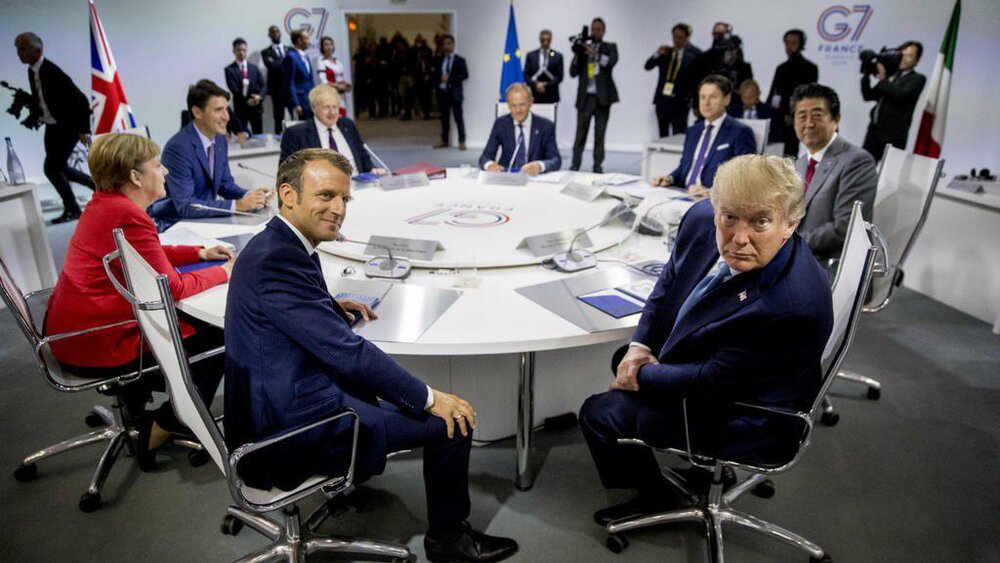Macron gets G7 nod over plan to defuse tensions with Iran

TEHRAN – French President Emmanuel Macron said on Sunday that G7 leaders had agreed to a joint action on Iran with the aim of defusing tensions and opening a new negotiation with Tehran.
“We agreed on what we wanted to say jointly on Iran,” Reuters quoted Macron as saying. “There is a message from the G7 on our objectives and the fact that we share them is important, which avoids divisions that in the end weaken everybody.”
“Everyone wants to avoid a conflict, Donald Trump was extremely clear on that point.”
It came after a French official said the French president had shared details of the plan to ease tensions with Iran during his working lunch with President Donald Trump at the G-7 summit.
The official, who was speaking anonymously in accordance with the French presidency’s customary practices, said France has been working for several weeks on the plan, the Associated Press reported on Saturday.
The diplomat said France and the United States share the same interests, which he claimed to be preventing “a nuclear-armed Iran.”
France’s plan would allow Iran to export oil for a limited amount of time. In exchange, Iran would need to fully implement the 2015 nuclear deal, reduce tensions in the Persian Gulf and open talks, according to the AP.
In recent days, Macron has taken steps in trying to save the 2015 nuclear accord, which has been unraveling since Trump pulled the U.S. out of the agreement. Russia, China, Britain, France and Germany have remained in the accord.
Iranian Foreign Minister Mohammad Javad Zarif on Friday met with Macron in Paris to discuss the implementation of the nuclear deal, which is also known as the JCPOA.
“France presented some suggestions to Iran on how to implement the JCPOA and the steps that both sides need to take. We also presented some suggestions on how to fully implement the JCPOA,” Zarif stated.
“The talks were good and productive,” he said, adding, “Of course, it depends on how the European Union can carry out the commitments within the JCPOA and also the commitments that they made after the JCPOA and America’s exit.”
Zarif reiterated Tehran’s long-held position that it is not possible to renegotiate the nuclear deal.
Trump has adopted a maximum pressure policy against Iran since he walked away from the JCPOA. The policy includes sanctions on Iran’s economy, especially its oil exports, and bans on top Iranian figures and organizations.
MH/PA
